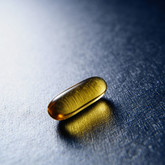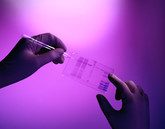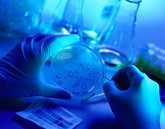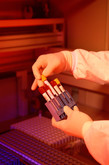Guidelines
India regulatory authority to adopt CTD format for NDAs
On 28 October 2010, India’s Central Drugs Standard Control Organization (CDSCO) released new guidance for industry for submission of new drug applications (NDAs) in the common technical document (CTD) format.
The FDA’s 2010 final rule and draft guidance
In an effort to improve safety detection, the FDA issued a final rule and draft guidance on 29 September 2010 to clarify the requirements governing safety reporting requirements for human drug and biological products subject to an investigational new drug (IND) application.
EGA meeting London 2010: monoclonal antibodies and biosimilars guidelines
In his opening address to the 8th EGA International Symposium on Biosimilar Medicines held in London on 2–3 September 2010, EGA Director General Mr Greg Perry praised the EU for inspiring the rest of the world regarding development of biosimilar guidelines.
The current EU regulatory framework governing biosimilars
The EMA’s Committee for Medicinal Products for Human Use (CHMP) has guidelines that provide a framework for the development of ‘biosimilars’ in the EU. The recent licensing of recombinant somatropins and several erythropoietins has proved that the present system works. Can the same regulatory path also be applied to more complex biologicals, such as monoclonal antibodies (mAbs)?
FDA Form 483 – punishment or learning opportunity?
The US FDA is authorised to perform inspections under the Federal Food, Drug, and Cosmetic Act. The FDA Form 483 is a form used by the FDA to document and communicate concerns discovered during these inspections and to list items that deviate from Good Manufacturing Practices.
Licensing of biosimilars in Europe
How is licensing of biosimilars actually being applied in Europe? This was the question broached in a paper by Dr Christian Schneider – Chairman of both the Committee for Advanced Therapies and Biosimilar Medicinal Products Working Party and Co-opted member of the Committee for Medicinal Products for Human Use (CHMP).
Singapore outlines process to register biosimilars
Drugmakers seeking to register a biosimilar product in Singapore should provide complete information on the development, control and manufacture of the drug and its active ingredient, a new guidance says. Comparability studies between the biosimilar product and its reference product also must be submitted, the Health Sciences Authority says in the guidance posted on its website on 1 August 2009.
Regulatory reflections on the FDA’s guidance on biosimilars and follow-on branded biologics
With US Congressional actions on biosimilar/follow-on biologics approaching, the FDA has issued a Guidance regarding the use of pens, jets, and other related injectors (see Draft Guidance for Industry and FDA Staff: Technical Considerations for Pen, Jet and Related Injectors Intended for Use with Drugs and Biological Products, April 2009). The Guidance recognises that these are innovative approaches to deliver drugs or biologics products that may enhance accuracy and patient compliance.
Global biosimilars guideline development – EGA’s perspective
Biosimilar guidelines and regulations are being developed all over the world, as outlined at the 7th EGA Annual Symposium on Biosimilars recently held in London, UK by Ingrid Schwarzenberger, Head Regulatory Affairs Biopharmaceuticals at Sandoz and member of European Generic medicines Association’s (EGA) European Biopharmaceutical Group.
EMEA guidelines on biosimilars and clinical implications
In Europe, the patents of protein products manufactured using biotechnology started to expire in 2000, and more than 10 will have expired by the end of the decade, including patents for growth hormones, α-, β- and γ-interferon interferon, human insulins, epoetin alfa, interleukin 2, G-CSF, follitropin, streptokinase, and tissue plasminogen activator. As with traditional low-molecular-weight chemically derived pharmaceuticals, this allows the possibility of developing new and cheaper versions of these biopharmaceutical products. However, while the former products are relatively easy to manufacture, the latter ones are much more challenging to produce, for many reasons. Recombinant proteins are large molecules, which have a highly complex three-dimensional structure and are not synthesised in vitro, but produced and secreted by genetically modified cells. During this process, proteins can undergo posttranslational modifications, such as glycosylation, that lead to heterogeneity.










